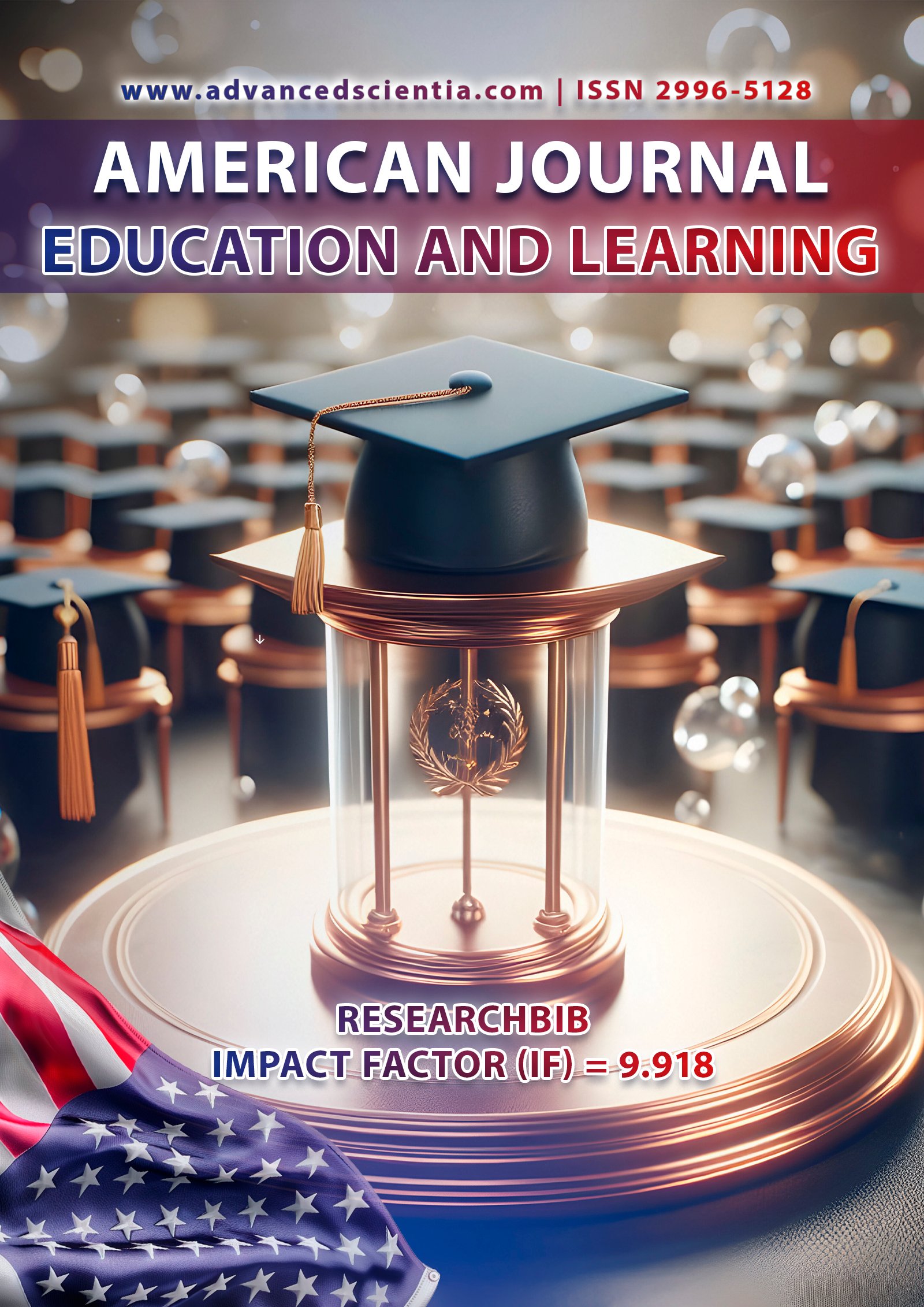THE EFFECTIVENESS OF NATIVE LANGUAGE AND LITERACY EDUCATION IN PRIMARY SCHOOLS
Abstract
This article explores the effectiveness of native language and literacy education in primary schools, emphasizing the importance of aligning educational content with students’ real learning capabilities. It highlights the need to consider students' age-related characteristics, comprehension levels, and task performance abilities. The study outlines how understanding students' developmental stages helps teachers structure lessons more effectively, select appropriate pedagogical methods, and build productive student-teacher relationships. Differentiation of tasks based on students’ mastery levels is also addressed as a critical factor in ensuring learning success.
References
1. Jabborova, O. M., & Umarova, Z. A. (2020). Pedagogical conflicts in primary school students-as an important social-pedagogical problem. Solid State Technology, 63(6), 235-241.
2. Sarvinoz, T. (2024). BOSHLANG'ICH SINFLARDA TANQIDIY FIKRLASH QOBILIYATLARINI SHAKLLANTIRISH. Elita. uz-Elektron Ilmiy Jurnal, 3(1), 197-200.
3. Sarvinoz, T. (2024). BOSHLANG’ICH TA’LIM O’QUVCHILARINING MAKTABDAN TASHQARI TA’LIM SAMARADORLIGINI OSHIRISH. O'ZBEKISTONDA FANLARARO INNOVATSIYALAR VA ILMIY TADQIQOTLAR JURNALI, 3(33), 174-177.
4. Tojiboyeva, G. R., & Oybekova, S. (2024). USING UZBEK NATIONAL PATTERNS IN TECHNOLOGY LESSONS IN PRIMARY SCHOOL. Web of Technology: Multidimensional Research Journal, 2(12), 21-24.
5. Shaxzoda, S., & Munavvarxon, S. (2024). Intellektual rivojlanishida boshlang‘ich sinf o‘quvchilarining ertak terapiya usulidan foydalanish texnologiyasi. Elita. uz-Elektron ilmiy jurnal, 3(1), 23-27.
6. Shoyusupova, S. (2024). Technology of professional skills development of primary education students. Web of Teachers: Inderscience Research, 2(9), 87-91.






















